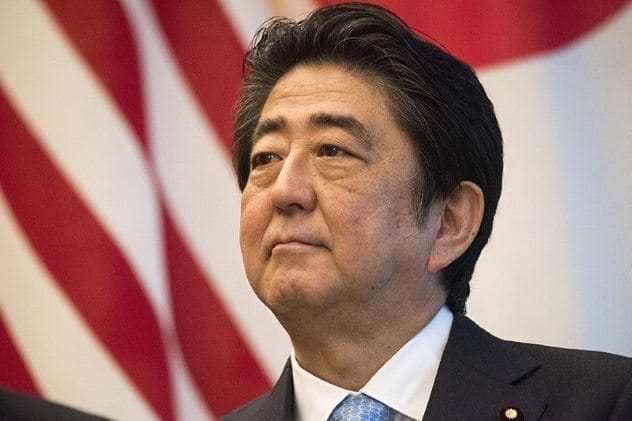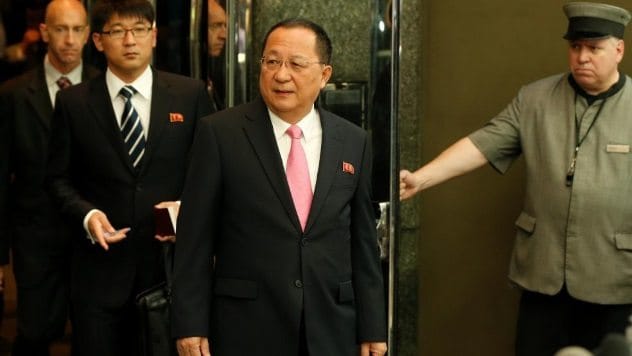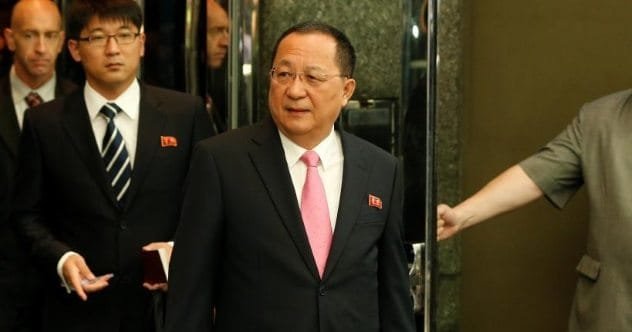Keeping up with the ever-spinning news cycle can feel like a full-time job. It’s tough, right? That’s why we’ve done the legwork for you, rounding up some of the most significant, peculiar, or simply astounding stories that unfolded. The end of September brought a whirlwind of political drama, almost like election season was back in full swing. Major nations faced surprising election outcomes, another announced an unexpected vote, and one key region made a historic decision to become the world’s newest nation. While politics wasn’t the only theme, it was hard to miss the major shifts happening in governments worldwide.
10. Germany’s Election Delivers Double Shockwaves

Angela Merkel is set to lead Germany for another four years. While that was the main headline from Sunday’s German election, it wasn’t a huge surprise. However, two major shocks lurked beneath this expected victory.
First, the right-wing, anti-immigrant Alternative fur Deutschland (AfD) made significant gains. Founded in 2013 as an anti-Euro party, it shifted its focus around the 2015 migrant crisis. Polls consistently suggested the AfD would enter Berlin’s Bundestag, as any party surpassing five percent qualifies. But the AfD didn’t just scrape by; they secured 12 percent of the votes, making them Germany’s third-largest party.
The second shock was the dramatic fall of the center-left SPD. As junior coalition partners to Merkel’s CDU, the SPD began 2017 with high hopes. Their new leader, Martin Schulz, was hailed as a potential game-changer, with his party polling in the 40s and predictions he might unseat Merkel. Instead, Schulz led his party to its worst defeat since 1949, capturing only 20.5 percent. This devastating result prompted the SPD to withdraw from government, forcing Merkel to build a new coalition with the pro-business FDP and the Greens. Given the differing views of these parties, Germany’s next government might face considerable internal conflict.
9. New Zealand Election Ends in a Deadlock

Just a day before Germans faced a weakened government, New Zealanders experienced a similar situation. Prime Minister Bill English’s National Party began election night as a minority administration with enough parliamentary support for key votes. They ended it just six seats ahead of a left-wing coalition of the Greens and a revitalized Labour Party, with two of their allied parties losing their parliamentary seats. This outcome left no single party or straightforward coalition able to form a government.
The main beneficiary in this complex situation was Winston Peters, the plain-speaking, anti-immigrant leader whose New Zealand First party, despite losing three seats, found itself in the powerful position of kingmaker. With the National Party holding 58 seats and the Labour-Greens alliance at 52, Peters’s nine seats are crucial for either side to reach the 61-seat majority needed to govern New Zealand. Peters indicated a decision wouldn’t be made before October 7, leaving New Zealand effectively without a functioning government until then.
8. Kurdistan Votes for Independence, Creating a New Nation

Following two significant elections, Monday brought another major global shift. In a fiercely debated referendum, Iraq’s autonomous Kurdish region voted overwhelmingly—by 92 percent—to separate and establish an independent country. This result sparked anger and concern, uniting Washington, London, Brussels, Baghdad, Tehran, Moscow, and Ankara in their disapproval, a rare moment of international consensus.
Before Saddam Hussein’s fall in 2003, Iraq’s Kurds were a severely oppressed minority. The rise of ISIS further complicated the region. As Kurdish forces fought back against ISIS, they gained control of former Iraqi cities like Kirkuk, which had fallen to the Islamic State. This expanded Iraqi Kurdistan’s territory. Including Kirkuk in the independence referendum greatly angered Baghdad.
There are fears that Monday’s vote could ignite new conflict in the Middle East. Iraq might attempt to reclaim Kurdistan by force, or neighboring countries like Iran or Turkey could intervene to prevent their own Kurdish minorities from seeking independence.
7. Washington Faces a New E-Mail Controversy

A year ago, “Clinton” was often paired with “e-mail” and “scandal.” Hillary Clinton’s use of a private server for official e-mails was a major point of contention during the 2016 election. Now, a new e-mail controversy has surfaced in Washington, but this time, the focus isn’t on the Clintons. Instead, attention is on three prominent figures: Kushner, Bannon, and Trump.
On September 25, reports revealed that six of President Trump’s closest advisors had used private e-mail servers for official business. The news first implicated the president’s son-in-law, Jared Kushner. This was followed by a wave of further allegations involving former White House chief strategist Stephen Bannon, former chief of staff Reince Priebus, and two other Trump advisors. The most notable name to emerge was the president’s daughter, Ivanka Trump.
Democrats have initiated an investigation into this new e-mail situation, possibly in response to the GOP’s previous attacks on Hillary Clinton. It’s important to note, however, that the scale of the alleged offenses differs. Kushner is reportedly being investigated for about 100 e-mails, whereas Hillary Clinton had mishandled tens of thousands.
6. Japan’s Prime Minister Takes a Big Risk with a Surprise Election

A few months ago, an emerging party in Tokyo dealt Japanese Prime Minister Shinzo Abe a significant blow in regional elections, causing his approval ratings to plummet. At that time, there was speculation that Abe’s leadership tenure might be nearing its end. This week, Abe made a bold move by calling a surprise election for October 22, a high-stakes gamble that will either affirm his position or confirm earlier predictions.
Abe’s election strategy was announced just moments after Tokyo Governor Yuriko Koike revealed she was forming a new national party. Since Koike was responsible for Abe’s defeat in the Tokyo elections, her new party poses a genuine threat to the current government.
Shinzo Abe is an important figure on the world stage. Not long ago, he seemed poised to become the longest-serving post-war prime minister of the world’s third-largest economy. However, the past two years have been filled with electoral surprises. It’s possible that Japan’s electorate is now less than a month away from delivering another shock to their establishment.
5. Russia Uncovers Shocking Cannibal Killings

It began with a lost cell phone. On September 11, construction workers in Krasnodar, Russia, found a damaged phone on the street. It wasn’t locked, so they looked through the pictures. What they discovered were horrifying images of a man and woman posing with dismembered bodies and apparently consuming human flesh.
The phone was traced to Dmitry Baksheev, a kitchen worker at a military hostel. He and his wife, Natalia Baksheeva, were arrested this week. Police uncovered disturbing evidence suggesting the couple might have spent nearly two decades engaging in horrific acts of murder and cannibalism. If all their confessions are verified, they could be among Russia’s most notorious serial killers.
While details are still emerging, it appears the pair would drug their victims, skin them alive, and then eat their remains. Photos found on the phone, dating back to 1999, showed a severed human head on a table surrounded by fruit. Human flesh was reportedly found in their freezer, and there’s evidence they attempted to sell it to the kitchen where Dmitry worked. In total, the couple is suspected of killing up to 30 people.
4. Experimental Implant Revives Man from Vegetative State

Fifteen years. That’s how long an unnamed patient, part of an experiment reported this week, had been in a persistent vegetative state. This condition means he was as close to death as one can be without actually being deceased. It has long been believed that anyone in this state for over a year has no hope of recovery. This assumption may now need to be revised. After doctors fitted an implant to the patient’s vagus nerve, they were able to bring him to a state of minimal consciousness.
The vagus nerve acts as the brain’s main communication pathway to the rest of the body. It also connects to two brain regions associated with consciousness. By electrically stimulating this nerve for a month, doctors enabled the injured man to follow objects with his eyes, show surprise, and even perform simple tasks like turning his head.
This breakthrough is incredibly significant. We might one day reach a point where we can fully revive individuals in certain types of vegetative states, marking a true victory for medical science.
3. Mexican Quake Survivor Story Turns Out to Be False

Last week, Mexico was struck by its second devastating earthquake in less than two weeks. One of the most heartbreaking incidents was the collapse of a school, which resulted in the deaths of many children. Amidst the tragedy, a story emerged of a 12-year-old girl named Frida Sofia, supposedly trapped in the rubble, with authorities working tirelessly to rescue her. Her survival story captivated Mexico, a nation in desperate need of good news, and it also garnered international attention.
On Friday, September 22, this attention turned to anger. Rescue workers abruptly stopped searching for Frida, not because she had died, but because it turned out she had never existed. The revelation that Frida Sofia was not real made many in Mexico furious. There was a sense that the authorities and media had misled the public, perhaps to divert attention from planning failures that contributed to the earthquake’s deadliness. Curiously, this isn’t the first time such a story has gripped Mexico only to be proven false. After the 1985 earthquake, a similar massive effort was made to save a boy supposedly trapped in a collapsed house, who also turned out to be fictional.
2. Former Congressman Anthony Weiner Jailed for Sexting a Minor

The downfall of Anthony Weiner has been a recurring news item. The former New York congressman was initially known for having one of the more memorable names in American politics. Later, he became infamous for a sexting scandal involving sending inappropriate pictures of himself. This week, his reputation sank even lower. Weiner is now notorious for sending explicit messages online to an underage girl.
The details of the case are deeply disturbing. Weiner persuaded a 15-year-old girl to send him naked pictures of herself. This act was so clearly illegal that no amount of connections could shield him from the consequences. After being found guilty in May, Weiner has now been sentenced to 21 months in jail.
1. North Korea Claims the US Declared War

Over the past year or so, North Korea has transformed from a subject of jokes into a source of widespread fear. Under the leadership of Kim Jong-un, the country has conducted more nuclear tests than ever, threatened to bomb Guam, launched missiles over Japan, suggested it might test a hydrogen bomb in the Pacific, and generally behaved as if it’s on a mission to start World War III.
This week, that mission seemed to inch closer to reality. In response to sharp tweets from President Trump, North Korea’s foreign minister, Ri Yong-ho, asserted that the US had declared war. The consequence? Pyongyang announced it was now prepared to shoot down any US aircraft that flew within 80 kilometers (50 miles) of its borders.
To be clear, the US is not officially at war with North Korea over this declaration. However, it’s likely that Pyongyang will now target US planes. If even a single one is shot down, it could very well lead to actual war, potentially involving thermonuclear weapons. We are at a critical juncture: in one possible future, people will look back at this moment and wonder what all the fuss was about. In another, the world might be a drastically changed, and perhaps devastated, place.
What a week it’s been! From electoral upsets shaking established governments to personal scandals and dire international tensions, the world certainly kept us on our toes. It’s a reminder of how quickly things can change and how interconnected our global community truly is.
Which of these stories shocked you the most? Leave your comment below and let us know your thoughts!










